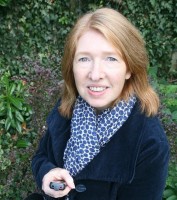A curator examining tropical butterflies in the Darwin Centre, which holds 22 million insect and plant specimens. Pic: © Trustees of the Natural History Museum
Harwell Campus chosen to host new £180m Natural History Museum science and research centre
Harwell Science and Innovation Campus will be the location for a new £180m Natural History Museum science and research centre.
The Chancellor of the Exchequer, Rishi Sunak, has pledged the cash over six years as part of his Budget 2020 announcements.
The new facility will be a base for natural sciences research and is intended to help the Natural History Museum protect the future of its collection of 80 million specimens. It will also create an international research centre aimed at tackling global challenges such as climate change, resource scarcity, biodiversity loss and emerging diseases.
Open to scientists and researchers from around the world, it will house 40 per cent of the Museum’s collections plus laboratories, digitisation suites, technology-enabled collaborative research spaces, computing, conservation laboratories and workspaces for digital scholarship.
The plans will allow Museum staff to move collections at risk of deterioration and irreparable damage from being housed in ‘functionally and physically obsolete 20th-century buildings to facilities which meet international collection standards’.

A scientist preparing DNA samples for genome sequencing. The Natural History Museum houses molecular labs. Pic: © Trustees of the Natural History Museum
Harwell Science and Innovation Campus partner and director Angus Horner points out the decision to site the Natural History Museum on the Campus means it can take full advantage being on the same location as the Diamond Light Source, the UK’s Synchrotron.
He says: “One of the first challenges we would welcome working with the Museum on is food production – to resolve the interconnected human and planetary health pressures. With the Museum here on Campus we can bolster the many organisations working in this area at Harwell.
“The Museum’s deep knowledge of the natural world is synergistic with multiple organisations at Harwell Campus.”
He adds: “Working collaboratively, we can place the UK at the forefront globally of developing both sustainable food production technologies and environmental stewardship strategies. This is just one example of the benefit to the UK of today’s announcement.”

Aerial image of Harwell Campus. Pic: Harwell Campus
